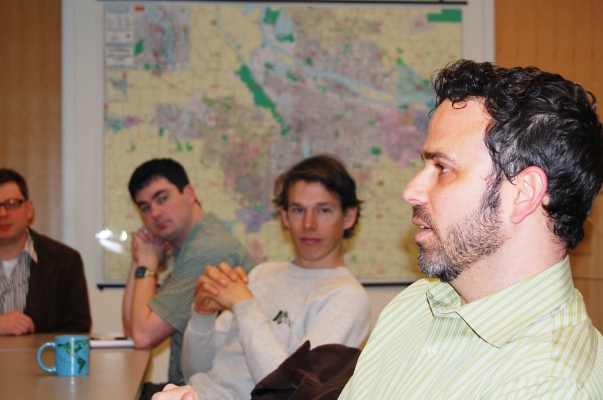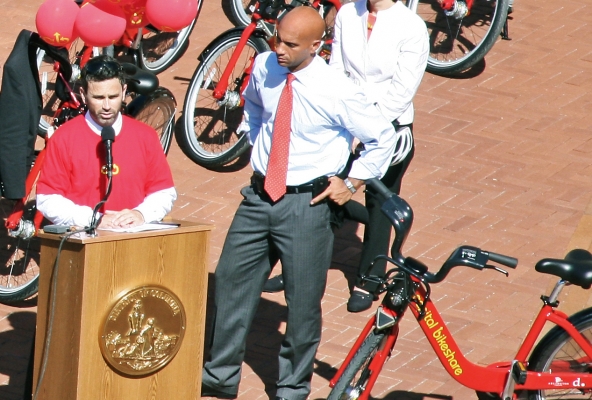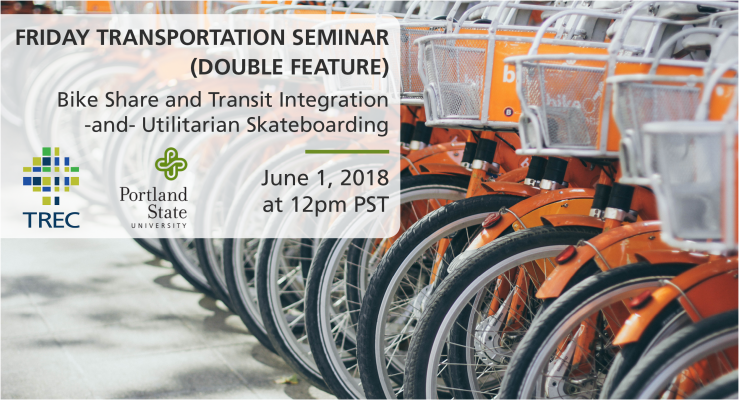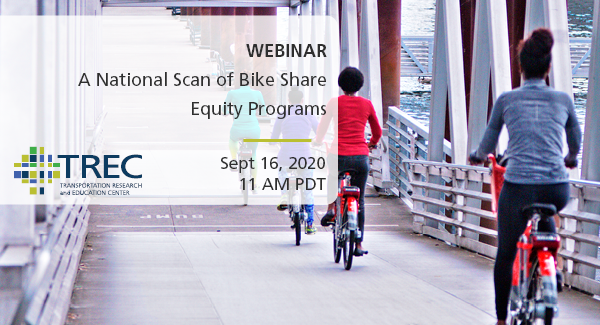OTREC has selected its first roster of projects under the new National Institute for Transportation and Communities, or NITC, program. The program’s executive committee chose 19 projects, totaling $1.97 million, under the NITC theme of safe, healthy and sustainable transportation to foster livable communities.
The projects have national implications and reflect priority areas including public health, equity and transit. True to the program’s multidisciplinary nature, projects extend beyond transportation engineering and planning to include sociology, chemistry, economics and more—10 disciplines in all.
While Portland State University, the University of Oregon and the Oregon Institute...
Read more

 He met with city and Lane Transit District officials before touring the
He met with city and Lane Transit District officials before touring the 

